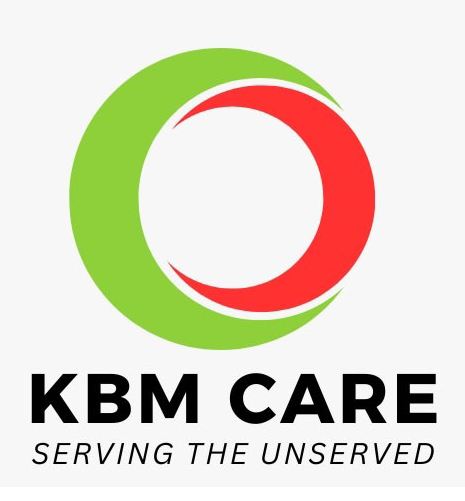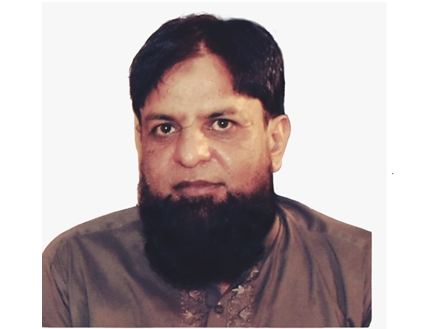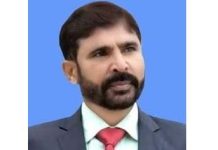By Khalid Bin Majeed
“Mighty oaks from little acorns grow”. This proverb encapsulates the KBM Care Foundation’s rapid rise as a trusted humanitarian force since its inception in 2022.
Despite minimal initial publicity, the Foundation has transformed lives in Pakistan’s underserved regions, including Azad Jammu and Kashmir and Gilgit-Baltistan, through collaborative efforts with volunteers, donors, and partners.
Headquartered in Islamabad, the Foundation operates through its strong volunteer’s base across the county including Azad Jammu and Kashmir and Gilgit-Baltistan. This decentralized model enables tailored responses to the local needs, such as earthquake relief in Muzaffarabad and drought mitigation in Balochistan.
We believe that dealing with healthcare in hospitals and man-made disasters is not enough until we deal with some major causes of these problems.

Tobacco products, sugary drinks, substandard ghee and oils, low quality food items etc. account for much of the most of diseases we come across in hospitals. Similarly, ignoring safety protocols and violating environment protection guidelines lead not only to natural disasters but also squandering of resources like water. A team of self-motivated students of different universities working on these themes under the guideline of Dr. Hassan Shehzad, a known media professional and teacher, whose reports have been referred to by as prestigious institutions as IMF, is dedicated to address the causes of diseases and natural disasters.
Below is a streamlined overview of its impact, challenges, and vision is as und.
Equitable aid for marginalized communities: Over the past three years, our trained volunteers have provided food and nonfood items and financial assistance to over 17,300 low-income and marginalized families in the underserved areas. Fifty sessions were conducted to train the volunteers in effectively responding to the emergency situations.
Health and care service: Providing comprehensive health services — including primary health care, communicable diseases, maternal health, psychological support services, nutrition and capacity-building of health facilities — is a fundamental segment of our programe, prioritizing women, children and vulnerable people. During the period in question, 15,430 patients were served by arranging 12 medical camps and 10 eye camps.
Water, sanitation and hygiene services: Our carefully crafted and meticulously executed WASH programs have benefitted around 25,000 people by enhancing their access to hygiene and clean water. The communities were engaged through the media campaigns in national newspapers and area elders. Five filtrations plants have been installed at different places to cater to the deserving people.
Displacement and migration assistance: This segment focuses on enhancing the wellbeing and resilience of displaced people by ensuring their access to health, education, and social services. So far, a total of 713 displaced individuals have been supported. Ten education support programs have been launched for their welfare.
Community development programs: By leveraging indigenous wisdom and fostering shared vision, our community development initiatives have driven regional awareness and contributed to SDG health outcomes and climate action. Twenty events have been held so far for community engagement, while 15 partnerships have been established with the academia, media, and art councils.
Cash assistance and livelihood support: Our cash assistance program aims to provide livelihood and food security to the vulnerable and disaster-hit individuals through dignified and transparent assistance. Cash has been provided to 60 individuals while 30 training sessions have been conducted for imparting vocational training.
Youth engagement and development: Our youth programs remained focused on leadership development, volunteerism and skill training, preparing the next generation go contribute in a big way to the society. Twenty-five leadership workshops have been conducted so far, training 5,000 volunteers.
Legal support program: This program aims to provide free technical and legal support to the juveniles and prisoners who can’t afford legal representation. Under the program, the Foundation has provided 50 individuals with legal assistance by holding five legal aid clinics.
Challenges & Resilience: Resource constraints: Limited funding delayed the expansion of a Gilgit-Baltistan maternal health project.
Political instability: Operational pauses in Khyber Pakhtunkhwa due to 2023 election-related disruptions.
Logistical hurdles: The Foundation leveraged partnerships with local NGOs to reach the isolated communities during natural or manmade disasters. Despite these challenges, partnerships with international organizations and local governments ensured continuity.
A beacon of hope: The Foundation remains committed to dignity, equity, and resilience. By refining strategies based on past lessons — such as integrating community feedback into program design — it aims to empower marginalized populations, ensuring sustainable growth and hope for generations.
The writer is founder at KBM Care Foundation

















